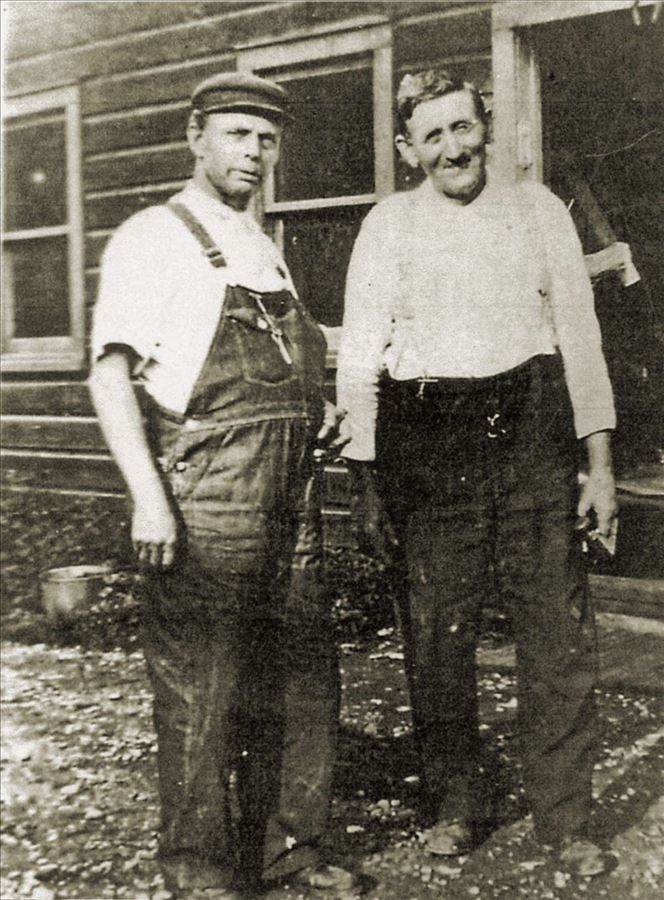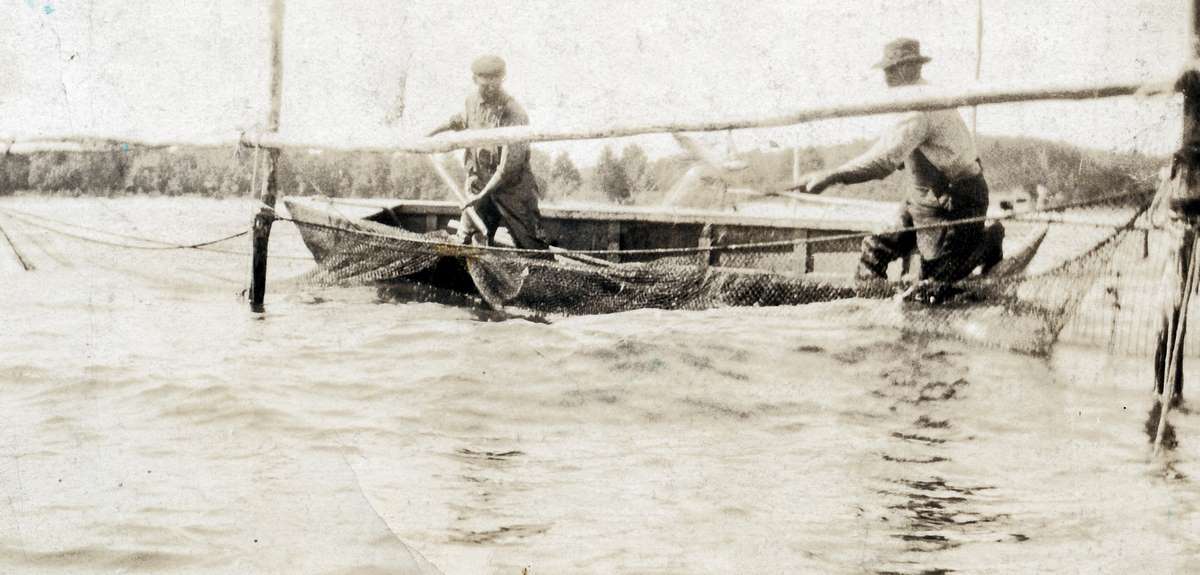By Amanda Holmes, Fishtown Preservation
Many of Leland’s families, including fishing families, go back generations, and we appreciate and celebrate these deep ties. Many of us, though, have made our way to this beautiful area by a path other than that of family. These paths have often been unpredictable, and what led us here was sometimes mere happenstance. What’s important, however, isn’t what brought us here. What’s important is that here we feel at home.
Fifteen years ago I was finishing a history of Omena, a village on the Grand Traverse Bay side of the Leelanau Peninsula, for the local historical society. My parents had lived in Omena for fifteen years, but back then I had no idea my own path would soon bring me here, too.
When I look back, though, I can see a premonition of my own future in the story of two men usually known by the joint name, “Schram and Bauer.” In my work with Fishtown Preservation, they have often come to mind. They, too, came to the Leelanau in their forties, and they were commercial fishermen—and I’m disconcerted and sad at how little we now know about them.
We have only the uncertainties of distant, half-remembered stories to rely upon, but it seems Bill Schram was born in Indiana in 1872 and made his way to Omena around the time of the First World War. We know almost nothing of the first four decades of his life, but some heard that he’d once worked as a balloonist at county fairs—maybe an occupation whose uncertain footing suited him to take to the open boats that fishermen then used on the waters.
A few years younger than Bill, John Bauer was born near Saginaw and began fishing in Saginaw Bay as a teenager. He didn’t intend to make fishing his livelihood, though, and like Bill, John turned first to the world of amusements. He became a singer of “illustrated songs,” performances in vaudeville houses or the nickelodeon that featured a singer accompanied by a pianist and a dozen or more hand-colored, projected stereopticon slides. Eventually, however, the demands of filling a music hall with his unamplified voice brought on a persistent bronchitis, taking John off the stage and back to the boats. After fishing out of several other Lake Michigan towns, John met Bill, who had already set up on Omena Bay.
They formed an odd pair. Where Bill was wiry and loquacious, John Bauer was quiet and, at over six feet and 200 pounds, a little bear-like, with the same kind of unexpected grace in his movements. They seemed to have in common only their distinct bow-leggedness, a trait long common among wood-boat sailors. Nevertheless, their partnership lasted 33 years, ended only by Bill’s death in 1949. We know just a few facts about those years. They kept eventually two boats, the Swan of Omena and the Eclipse, rechristening the latter the Bill and John. On the beach beside their small red bungalow they kept four net reels. For extra income they made wood boxes to ship their own fish and for use by the local cherry industry, and in the winter cut ice from the bay for use in nearby ice houses through the warm months.
The bachelors were solitary but well liked by the locals. Once they received as a gift an iron door-knocker in the shape of an anchor. Soon after, an evening visitor from the city arrived at the door, banging the knocker again and again until John—who’d been shouting “Come in!”—came to open the door.
“Whyn’t you just open the door and walk in, the way folks do around here?” he asked in some exasperation. “Our knocker ain’t to be all wore out by using it the way you did!”
John retired from working the boats when Bill died, turning over the water operations to a pair of younger men. He thereafter led a retiring, contented life. “Life as a fisherman,” wrote one reporter, had “profited him a comfortable old age under his own roof, upon his own strip of shore.” He lived until 1965, when he rejoined Bill beneath an Omena tombstone that reads—of course—just “Schram and Bauer.”
A few photographs, a few memories—not much in quantity, but all the more precious because of it. Bill Schram and John Bauer were commercial fishermen, which is why I’m telling you about them here. Fishtown Preservation is about the lives built around commercial fishing on the Great Lakes—now, in the years to come, and in the years past—and because Fishtown is one of the few places where you can still experience that life, we are home to stories beyond the borders of Leland.
In the end, the story of Schram and Bauer is more than a fishing story. Bill and John made their way here by a meandering road, and while they regretted none of their earlier sojourns, here is where they decided to stay. After all, they were fishermen, and they were home.

